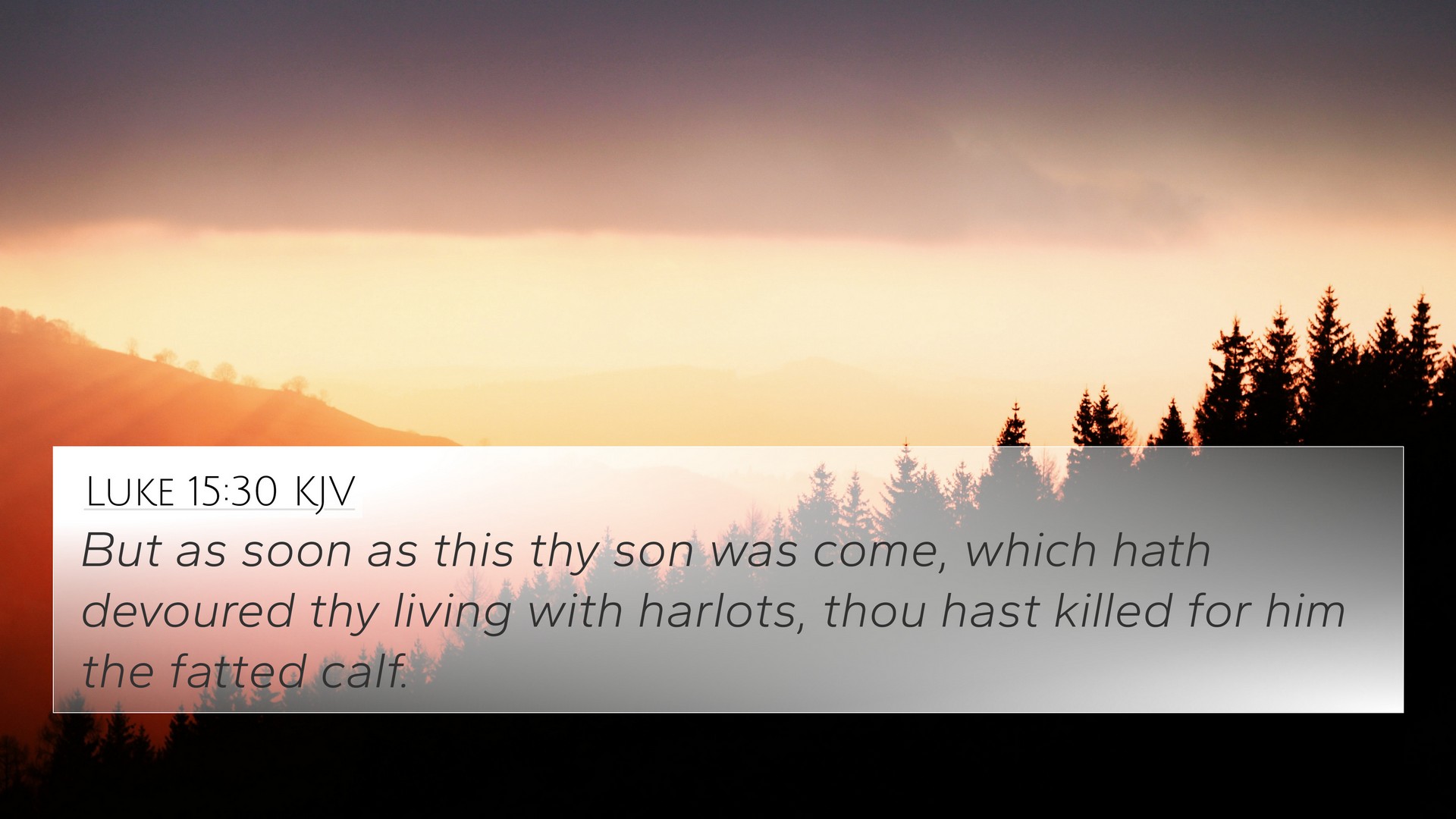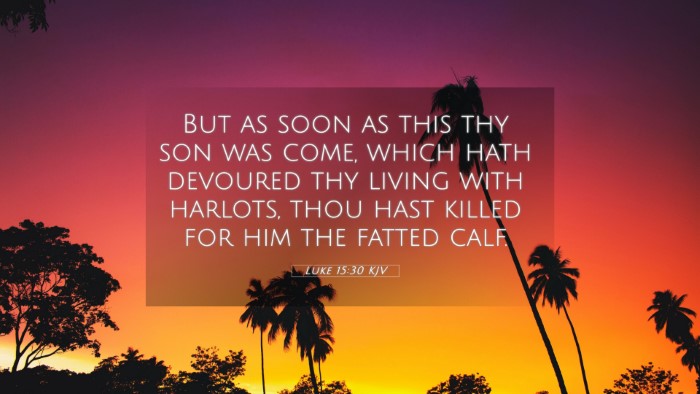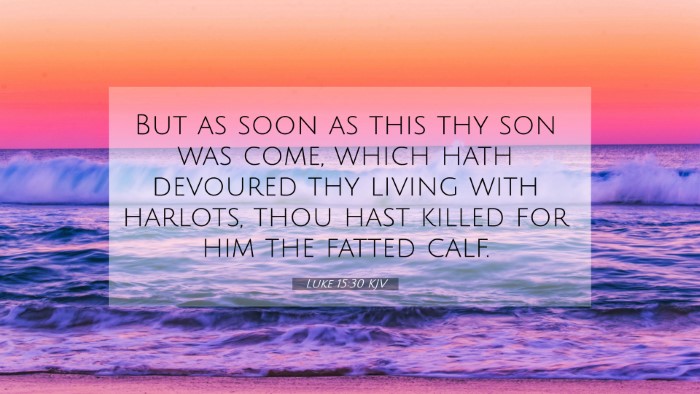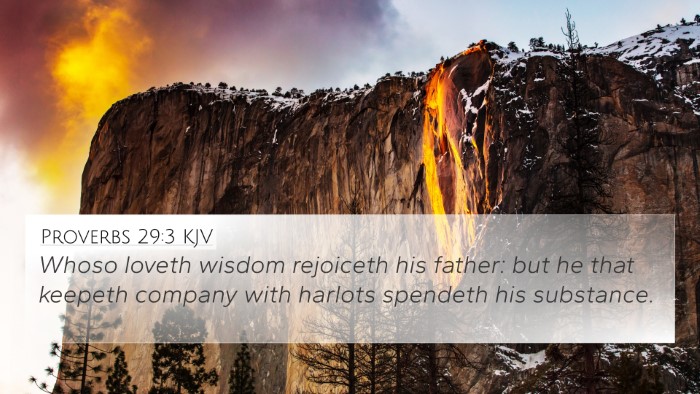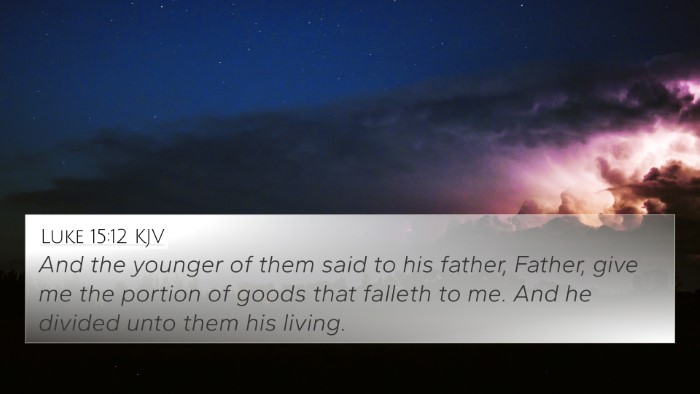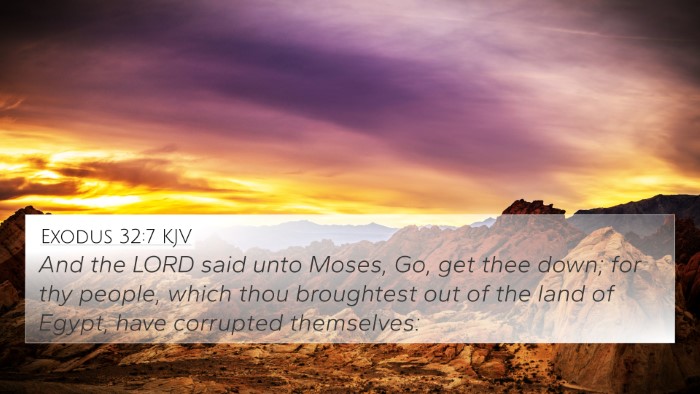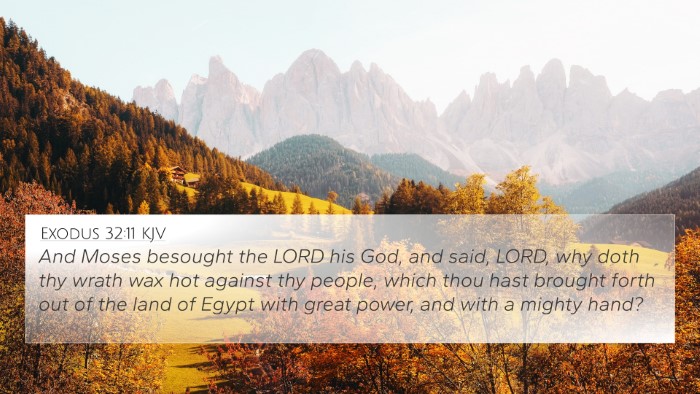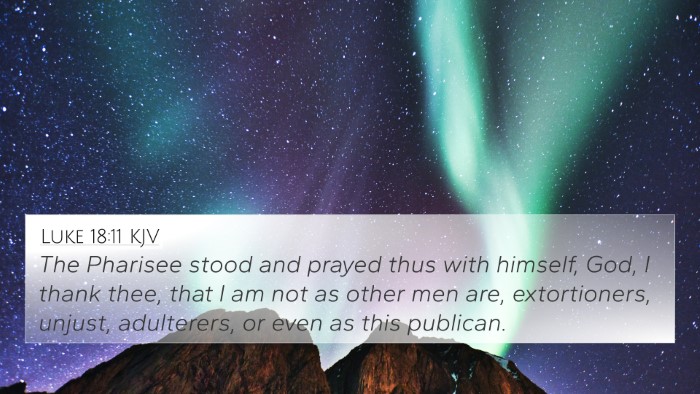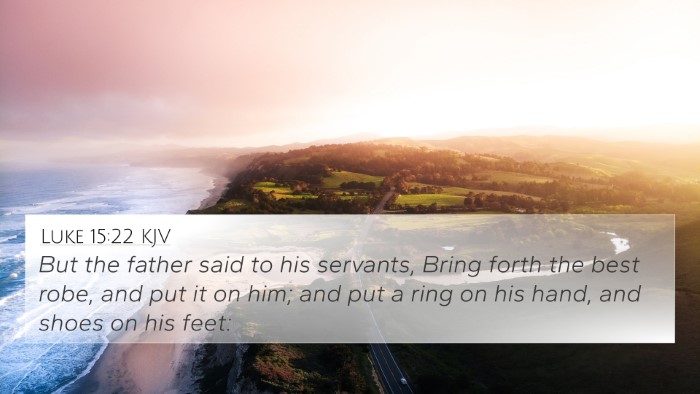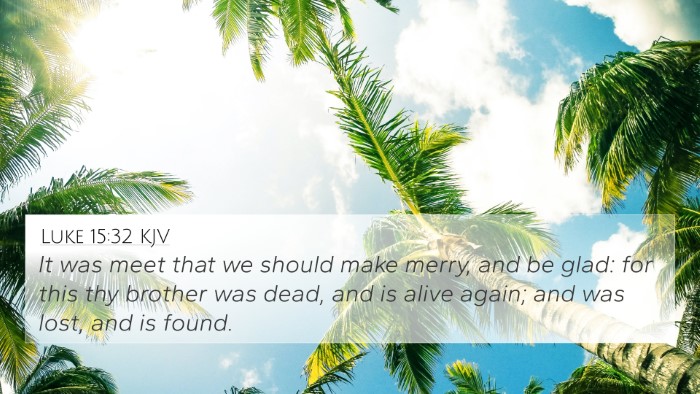Understanding Luke 15:30
In Luke 15:30, we encounter the familiar parable of the prodigal son, which illustrates themes of forgiveness, repentance, and the joy of reconciliation. The specific verse reads:
“But when this son of yours came, who has devoured your livelihood with harlots, you killed the fatted calf for him.”
Contextual Overview
This verse is situated within a larger narrative that emphasizes the joy in heaven over one sinner who repents (Luke 15:7). The story explores the dynamics between the elder brother and the father, addressing themes of jealousy, grace, and familial relationships.
Verse Meaning and Interpretation
Several public domain commentaries provide insights into the meaning of Luke 15:30:
- Matthew Henry: He emphasizes that the elder brother’s complaint reflects human tendencies toward resentment. He notes that the elder son's focus on the perceived injustice demonstrates a lack of understanding of grace. The father’s forgiveness is portrayed as a profound lesson on humility and love.
- Albert Barnes: Barnes points out the bitterness of the elder brother, suggesting that he fails to recognize his own blessings. His indignation at the celebration for the wayward son underlines themes of self-righteousness and entitlement, contrasting with the father's joy in restoration.
- Adam Clarke: Clarke highlights the elder brother's statement as indicative of a heart that is not fully aligned with the father’s values. He discusses how the brother's view is narrow and rooted in jealousy, missing the purpose of forgiveness and the joy of reconciliation.
Biblical Cross-References
Many Bible verses connect with Luke 15:30, providing a deeper understanding of its themes:
- Luke 15:7: "I say to you that likewise there will be more joy in heaven over one sinner who repents than over ninety-nine just persons who need no repentance." This emphasizes the joy in heaven over repentance.
- Matthew 18:21-22: Peter asks how many times he should forgive, to which Jesus replies with the parable of the unforgiving servant, demonstrating the importance of forgiveness.
- Romans 5:8: "But God demonstrates His own love toward us, in that while we were still sinners, Christ died for us." This verse underscores grace and unconditional love similar to the father’s love for his son.
- Galatians 6:1: "Brethren, if a man is overtaken in any trespass, you who are spiritual restore such a one in a spirit of gentleness." This reflects the need for restoration and forgiveness among believers.
- 2 Corinthians 5:18: "Now all things are of God, who has reconciled us to Himself through Jesus Christ, and has given us the ministry of reconciliation." This connects the themes of reconciliation present in the parable.
- James 4:6: "But He gives more grace. Therefore He says: 'God resists the proud, but gives grace to the humble.'" This speaks to the humility needed to receive grace, highlighted in the parable.
- 1 Peter 5:5: "Likewise you younger people, submit yourselves to your elders. Yes, all of you be submissive to one another, and be clothed with humility, for 'God resists the proud, but gives grace to the humble.'" This connects the attitudes present in the parable to the greater theme of humility.
Connections between Themes
The parable of the prodigal son illustrates the following themes:
- Forgiveness: The father's forgiveness exemplifies the divine nature of grace, offering a model for interpersonal relationships.
- Repentance: The return of the younger son signifies a heart change, which is essential for reconciliation.
- Jealousy vs. Joy: The elder brother's reaction sheds light on the contrasting emotions that often accompany grace and forgiveness.
Tools for Further Study
To explore the themes of forgiveness, jealousy, and reconciliation more deeply, consider the following tools:
- Bible concordance to find related scriptures.
- Bible cross-reference guide for thematic studies.
- Cross-reference Bible study methods to connect various texts.
Conclusion
Luke 15:30 serves as a profound reminder of the complexities of human emotions in light of divine grace. The commentary insights help us understand the motivations behind the characters' actions and invite us to reflect on our own attitudes toward forgiveness and grace.
As you continue your study, look for opportunities to apply the teachings to your life and to share the joy of reconciliation with others.
